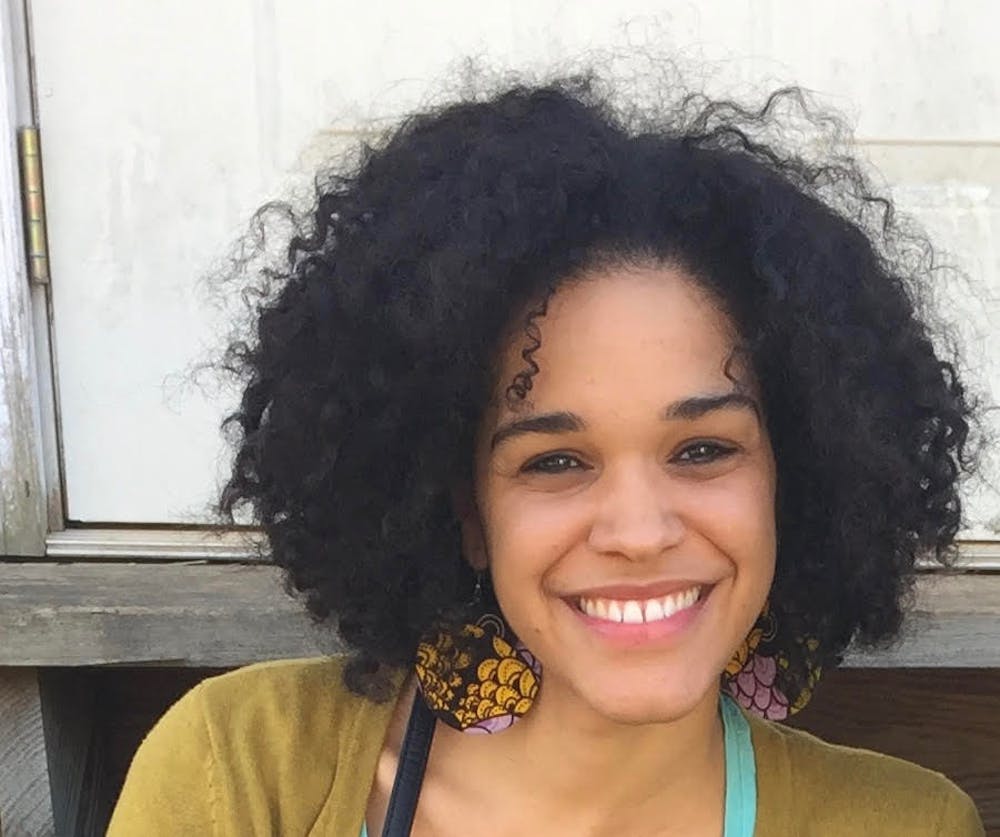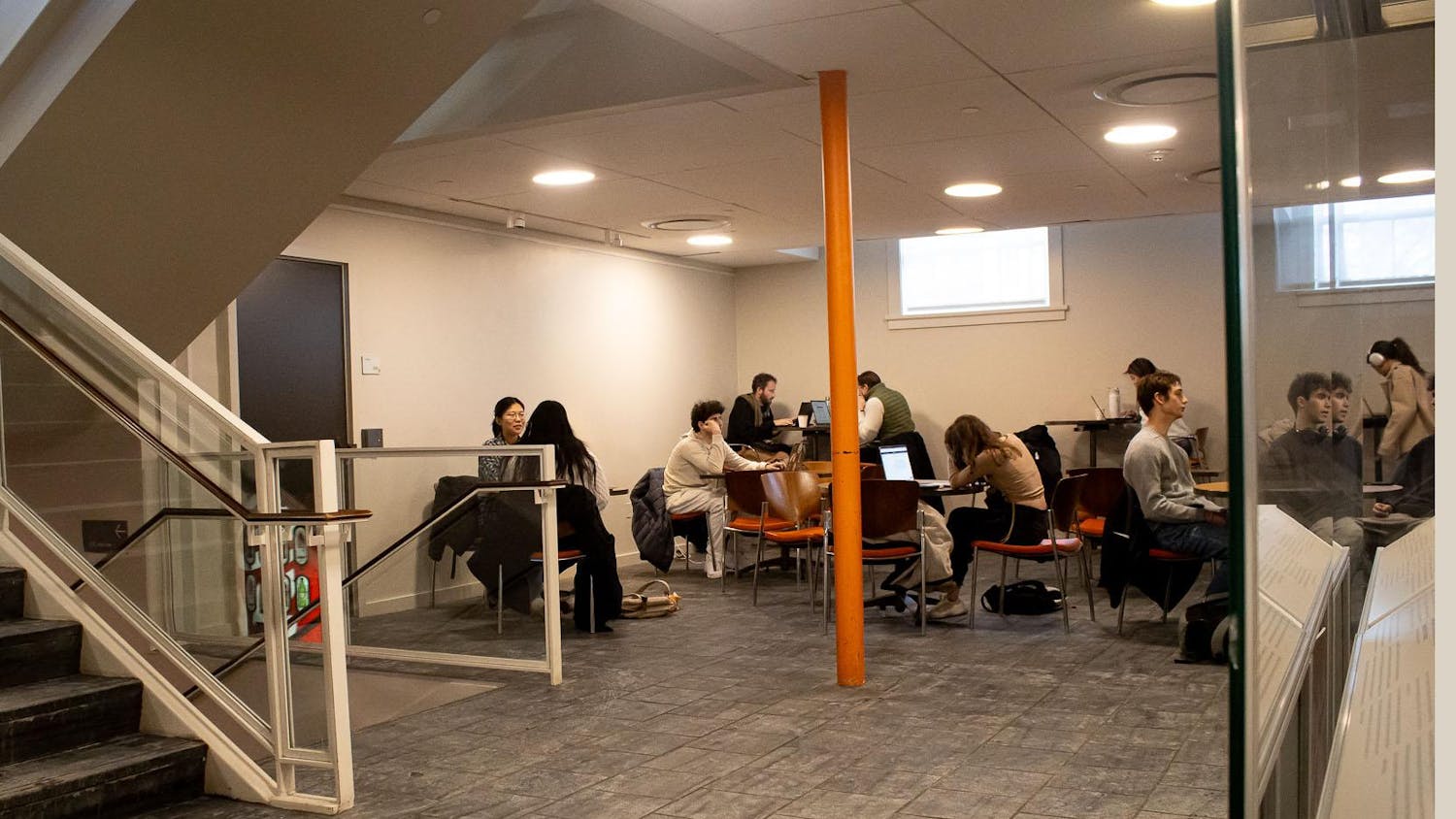The University hired Dara Kwayera Imani Bayer ’08 this summer to serve as its inaugural Transformative Justice Program Coordinator, where she will oversee projects that aim to address violence and instances of harm through accountability and healing rather than punitive or legal measures.
Camila Pelsinger ’20, who is a transformative justice student coordinator, spearheaded a year of advocacy that culminated in Bayer’s hiring. Bayer will serve in a two-year pilot position funded by the Office of the Provost.
The foundational principles of the transformative justice model “come from indigenous teachings,” which say that “we are interconnected, that everyone has a space and that when harm happens it’s because there is something that needs to be repaired as opposed to something that needs to be extracted from the community,” Bayer said.
Bayer will work closely with Marc Peters, assistant director for community dialogue and campus engagement, on the Community Dialogue Project, which aims to “help students foster intentional community and navigate conflict in their everyday lives,” and “cultivate student capacity to heal, process and learn through storytelling, dialogue and transformative processes,” according to its mission statement.
This semester, Bayer plans to roll out a yearlong Transformative Justice Practitioner program for a cohort of around 10 students. The cohort will work to better understand the nature of harm within their communities and relationship networks. They will also explore how their communities envision justice and accountability, Bayer said. In the spring, the students will begin an apprenticeship program guided by what they learned in the fall.
Training students to work within their communities is key because “for real transformation to happen, we have to work not just to change things outside of ourselves, but within ourselves,” she said.
While transformative justice is already used in some contexts on campus, particularly in response to gender-based violence, Peters said students have noted a gap in University resources to address conflict and harm through a non-punitive and more holistic approach.
Bayer was hired after a search process that followed a set of focus groups and informal conversations Pelsinger organized in fall 2018, when she was serving as vice president for the Undergraduate Council of Students. Those focus groups and conversations explored existing resources on campus and their capacity to introduce more community-based mechanisms of addressing instances of harm and violence, Pelsinger said.
Pelsinger ran for UCS vice president in spring 2018 “with the distinct goal of wanting to create alternative systems of healing and accountability for those in our community who have experienced harm,” she wrote in a Feb. 5 op-ed upon her resignation.
Pelsinger said she hopes that Bayer’s position will protect people from re-experiencing harm and “from needing to live with the guilt that because they didn’t report something … someone else is being harmed,” Pelsinger said. “I really see this new position as a way of opening up dialogue about the harm that is happening in our communities … and how we can hold each other accountable … and how we can prevent harm from happening in the future.”
After exploring positions that exist at other universities and deal with issues of violence and harm, Pelsinger found that those frameworks did not entirely fit what the focus groups envisioned would thrive at the University. Pelsinger then worked with Peters and former UCS President Shanzé Tahir ’19 to draft a proposal for a new type of position, which she presented to Provost Richard Locke P’18 at the end of the fall semester.
“UCS was the organization that gave us the platform to have these conversations and also to meet with administrators,” Pelsinger said.
A search committee was created after the Provost’s Office approved the pilot position. The committee included Peters, Pelsinger, UCS Chief of Staff Melissa Lee ’20, Assistant Director for the Brown Center for Students of Color Olivia McNeill and Student Success Program Coordinator for the Undocumented, First-Generation College and Low-Income Student Center Renata Mauriz ’17.
The search committee was struck by Bayer’s “way of embodying the values of the work in every aspect of her work and life,” Peters said.
Pelsinger also noted Bayer’s “magical way of communicating transformative justice in a way that was accessible to people who were not even aware of transformative justice beforehand,” she said. “That’s such a wonderful skill to have and I think we really valued that.”
In addition, “we really liked that (Bayer is) a Brown alum, so she has experience being a part of the Brown community,” Lee said.
Previously, Bayer worked as a humanities teacher and in a restorative justice role in Boston Public Schools. As an undergraduate, Bayer remembers “coming into my consciousness,” in part by participating in activism on campus that urged police accountability and University transparency.
Bayer acknowledged that while transformative justice is a community-based practice, “educational institutions are here to support the development of young people.”
“The kinds of changes we will want aren’t going to be given to us by institutions necessarily, they’re going to be created through the self-activity of people coming together and organizing themselves and being in a relationship with each other.”
Correction: A previous version of this article stated that focus groups and conversations explored the capacity of on-campus resources to "introduce more community-based mechanisms of conflict-mediation." In fact, they explored the capacity to introduce community-based mechanisms of addressing instances of harm and violence. In addition, the article previously stated that the focus groups explored similar positions at other universities. In fact, Camila Pelsinger '20 explored those positions. The Herald regrets the errors.





